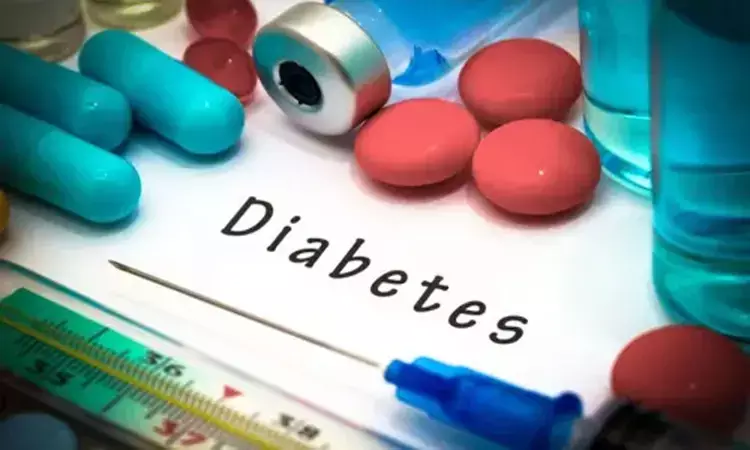- Home
- Medical news & Guidelines
- Anesthesiology
- Cardiology and CTVS
- Critical Care
- Dentistry
- Dermatology
- Diabetes and Endocrinology
- ENT
- Gastroenterology
- Medicine
- Nephrology
- Neurology
- Obstretics-Gynaecology
- Oncology
- Ophthalmology
- Orthopaedics
- Pediatrics-Neonatology
- Psychiatry
- Pulmonology
- Radiology
- Surgery
- Urology
- Laboratory Medicine
- Diet
- Nursing
- Paramedical
- Physiotherapy
- Health news
- Fact Check
- Bone Health Fact Check
- Brain Health Fact Check
- Cancer Related Fact Check
- Child Care Fact Check
- Dental and oral health fact check
- Diabetes and metabolic health fact check
- Diet and Nutrition Fact Check
- Eye and ENT Care Fact Check
- Fitness fact check
- Gut health fact check
- Heart health fact check
- Kidney health fact check
- Medical education fact check
- Men's health fact check
- Respiratory fact check
- Skin and hair care fact check
- Vaccine and Immunization fact check
- Women's health fact check
- AYUSH
- State News
- Andaman and Nicobar Islands
- Andhra Pradesh
- Arunachal Pradesh
- Assam
- Bihar
- Chandigarh
- Chattisgarh
- Dadra and Nagar Haveli
- Daman and Diu
- Delhi
- Goa
- Gujarat
- Haryana
- Himachal Pradesh
- Jammu & Kashmir
- Jharkhand
- Karnataka
- Kerala
- Ladakh
- Lakshadweep
- Madhya Pradesh
- Maharashtra
- Manipur
- Meghalaya
- Mizoram
- Nagaland
- Odisha
- Puducherry
- Punjab
- Rajasthan
- Sikkim
- Tamil Nadu
- Telangana
- Tripura
- Uttar Pradesh
- Uttrakhand
- West Bengal
- Medical Education
- Industry
ADA's updated 2020 guidance on pharmacologic treatment of adults with type 2 diabetes

The American Diabetes Association (ADA) has updated the guidance on pharmacologic treatment of adults with type 2 diabetes which has been published in the Annals of Internal Medicine. This will provide clinicians, patients, researchers, payers, and other interested parties with evidence-based recommendations for the diagnosis and management of diabetes.
1. Lifestyle changes and metformin are still recommended as first-line treatments;(Grade A recommendation).
2.Early combination therapy should be initiated for patients who do not achieve glycemic control within 3 months and/or for those with CVD or CKD;Grade A recommendation).
3.The early introduction of insulin should be considered if there is evidence of ongoing catabolism (weight loss), if symptoms of hyperglycemia are present, or when hemoglobin A1c (HbA1c) or blood glucose levels are very high (HbA1c >10% [86 mmol/mol], blood glucose ≥16.7 mmol/L [300 mg/dL]) (Grade E recommendation).
4. A patient-centered approach should be used to guide the choice of pharmacologic agents. Considerations include cardiovascular comorbid conditions, hypoglycemia risk, impact on weight, cost, risk for side effects, and patient preferences. (Grade E recommendation).
5. Among patients with type 2 diabetes who have established ASCVD or indicators of high risk, established kidney disease, or heart failure, a sodium–glucose cotransporter-2 (SGLT2) inhibitor or glucagon-like peptide-1 receptor agonist (GLP-1 RA) with demonstrated cardiovascular disease benefit is recommended (Grade A recommendation).
6. In patients with type 2 diabetes who need greater glucose lowering than can be obtained with oral agents, GLP-1 RAs are preferred to insulin when possible (Grade B recommendation).
7.The medication regimen and medication-taking behavior should be reevaluated at regular intervals (every 3 to 6 months) and adjusted as needed to incorporate specific factors that affect choice of treatment (Grade E recommendation).
This synopsis focuses on guidance relating to the pharmacologic treatment of adults with type 2 diabetes. Recommendations address oral and noninsulin injectable therapies, insulin treatment, and combination injectable therapies. Results of recent large trials with cardiovascular and renal outcomes are emphasized.
For further reference log on to:
Dr Kamal Kant Kohli-MBBS, DTCD- a chest specialist with more than 30 years of practice and a flair for writing clinical articles, Dr Kamal Kant Kohli joined Medical Dialogues as a Chief Editor of Medical News. Besides writing articles, as an editor, he proofreads and verifies all the medical content published on Medical Dialogues including those coming from journals, studies,medical conferences,guidelines etc. Email: drkohli@medicaldialogues.in. Contact no. 011-43720751


